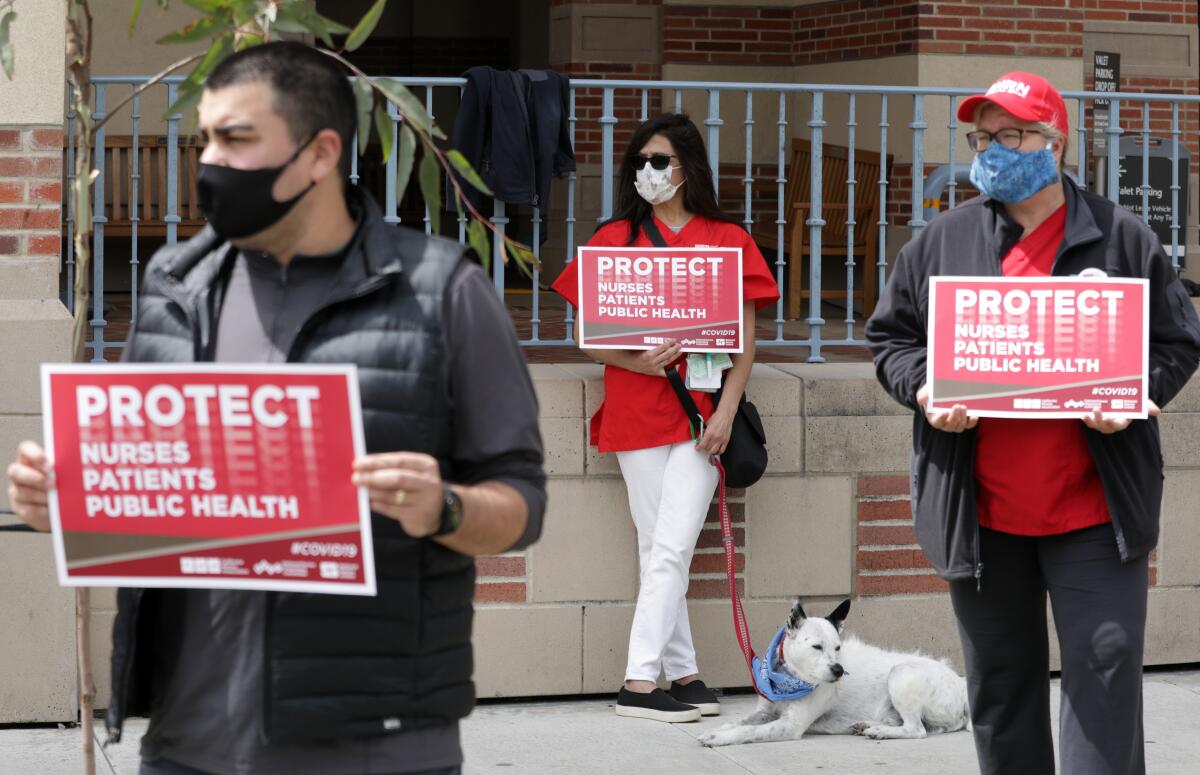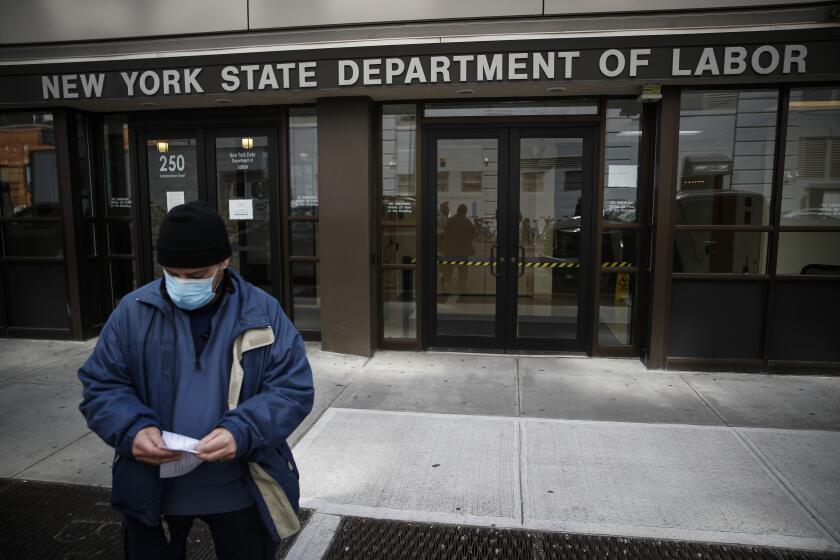COVID-19 has broken the U.S. health system. Now what?

- Share via
Update, Apr. 16: This article has been updated to reflect the latest number of unemployment claims reported.
With the United States experiencing the worst coronavirus outbreak in the world, the facade of our health system has come crashing down. We simply cannot afford to go on with the current structure, starting with how we provide access to care.
Twenty-two million Americans have filed jobless claims in the last four weeks. Not only have they lost their incomes, they may have lost something even more valuable during a pandemic: health insurance.
Even before the past few weeks, there were about 5.1 million uninsured American adults who are at high risk of a serious illness if they become infected with coronavirus. These people are vulnerable through no fault of their own even though they live in the richest country in the world.
While losing a job can be dangerous for a person’s well-being in any country, it is particularly hazardous in the U.S. A new report by the consulting firm Health Management Associates estimates that 12 million to 35 million Americans, including workers and their family members, could lose employer-based health insurance over the next few months. This situation is likely to last long after the immediate crisis abates, as was true after the last recession in 2008, which resulted in at least 9 million losing health insurance.
The COVID-19 stimulus package temporarily increases unemployment benefits. But many jobless people will still be left out in the cold.
Even those who are able to keep their jobs and their private insurance through this pandemic will take a financial hit. Since the 1990s, premiums and deductibles for families with employer-based insurance have soared. Copays have risen so much that many drugs are cheaper if purchased directly by the consumer using services like GoodRx than through insurance.
Now with the additional costs of testing and treatment for COVID-19, insurance companies will almost certainly push some of those costs onto consumers. According to some estimates, a “COVID effect” could raise premiums significantly next year. Businesses that survive this recession may have to roll back employee benefits next year, forcing their workers to shoulder even more of the cost. For many people, this simply won’t be affordable.
Insurance isn’t the only grave problem. The failure to provide adequate protection for health workers is further evidence of the dangerous cracks in the system. And now, at a time when many doctors are putting their lives at risk, their pay may be cut because hospitals expect to incur losses from steep reductions in clinic visits and elective surgeries, which are all being postponed.
In the short term, it is critical for the Trump administration to reverse its position and reopen enrollment to Affordable Care Act health plans during this crisis. Reopening enrollment would allow anyone without insurance to sign up even if they haven’t had a life-changing event such as loss of employment. This would be especially helpful for freelancers or gig workers who didn’t have health coverage before.
Documentation requirements to qualify for ACA subsidies also should be eased. Another good proposal calls on Congress to pass an emergency measure to authorize Medicare coverage for all people eligible for unemployment benefits. Some states have already moved to cover newly uninsured workers by moving up open enrollment, which includes ACA exchange programs. Some states and health insurers have also suggested that Congress subsidize transitional insurance programs such as COBRA by 90%.
The current crisis has highlighted all the failings of our patchwork insurance system. In the long term, the U.S. has to move forward with universal coverage for all Americans. While Medicare for All isn’t likely to be adopted given current political realities, there are alternatives. For example, a proposal from the Center for American Progress, called “Medicare Extra,” would make Medicare open to all as a public option that competes with private insurance. We must also stop running hospitals like hotels, being paid on a fee-for-service basis.
The pandemic has already changed many parts of medicine, like transforming most clinic visits to virtual visits, easing restrictions for doctors to work across states, focusing our attention on the dedication of healthcare workers and forcing the country to reckon with the deadly cost of ignoring public health.
In the coming months, there may well be a push to resurrect the American healthcare system as it was before COVID-19. We must not allow that to happen. The system was already failing most of us in peace time. It can’t withstand this war against a virus. It is long past time to build it anew.
Haider Warraich is a cardiologist at the VA Boston Healthcare System, Brigham and Women’s Hospital and Harvard Medical School, and author of “State of the Heart — Exploring the History, Science and Future of Cardiac Disease.”
More to Read
A cure for the common opinion
Get thought-provoking perspectives with our weekly newsletter.
You may occasionally receive promotional content from the Los Angeles Times.










